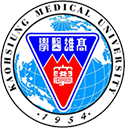Our colleagues work well in the pathogenesis, infectivity, and prevalence of Angiostrongylus cantonensis and Clonorchis sinensis, the 2 major agents causing important parasitic disease (eosinophilic meningitis and cholangitis, respectively) in Taiwan. The research about this 2 parasites aims as below. The immunoresponse of A. cantonensis in infected host, using mice as animal models. To approach worm antigens stimulate host's eosinophilia, antibody dependent cell-mediated cytotoxicity and activation of complements by antigen-associated antibody. The carcinogenic mechanism of cholangiocarcinoma in guinea pig after infected with C. sinensis. The research interests of our Department are diversely, and currently we also include 'New drug development of anisakiasis and hymenolepiasis', 'Molecular differentiation of Angiostrongylus and Anisakis species', and 'Anticancer Research about parasite infection'.
